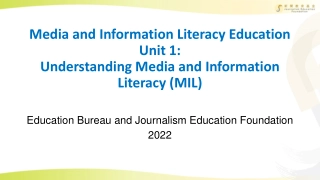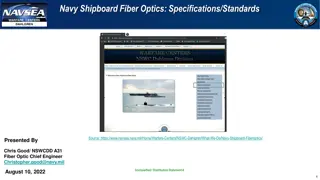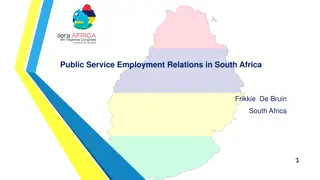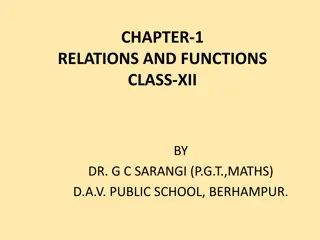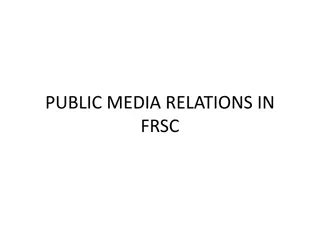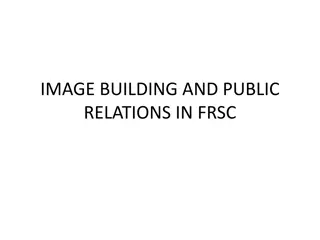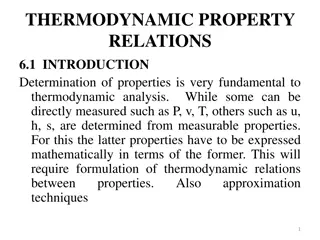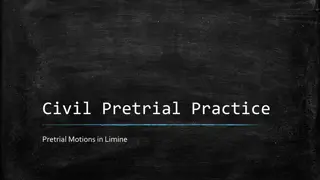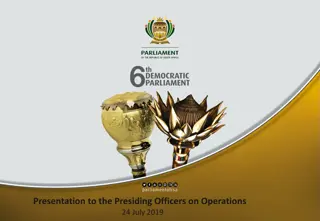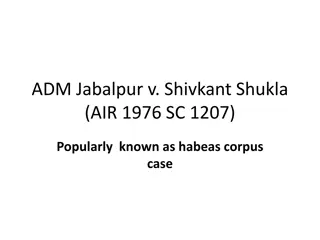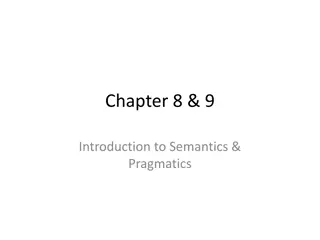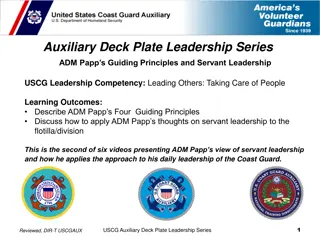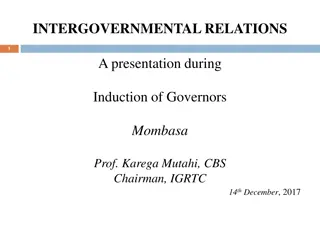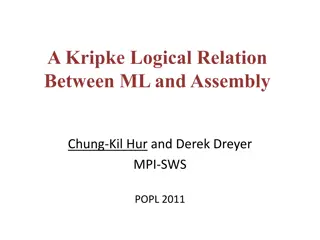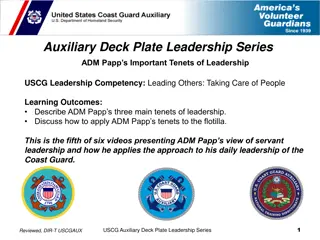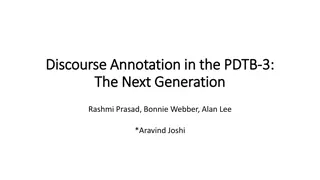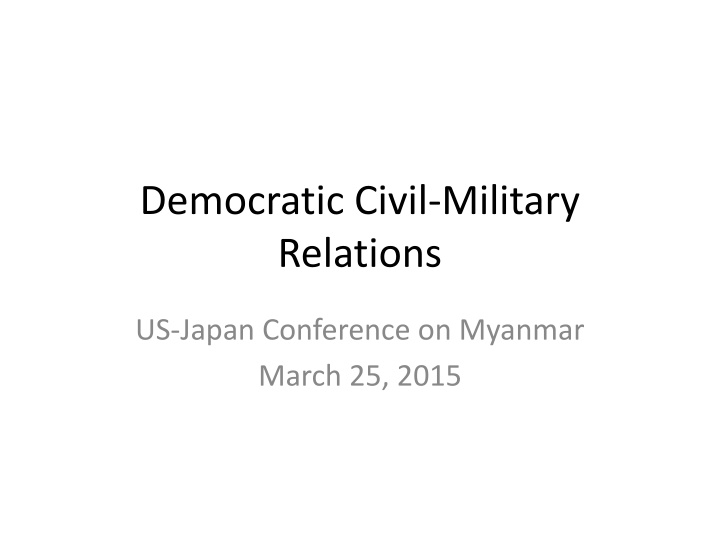
Understanding Civil-Military Relations and Democratic Transitions
Explore the dynamics of civil-military relations, transitions to democracy, and the characteristics of armed forces in a democratic government. From historical examples to present-day principles, learn the importance of a competent, neutral, and respected defense force in upholding democratic values.
Download Presentation

Please find below an Image/Link to download the presentation.
The content on the website is provided AS IS for your information and personal use only. It may not be sold, licensed, or shared on other websites without obtaining consent from the author. If you encounter any issues during the download, it is possible that the publisher has removed the file from their server.
You are allowed to download the files provided on this website for personal or commercial use, subject to the condition that they are used lawfully. All files are the property of their respective owners.
The content on the website is provided AS IS for your information and personal use only. It may not be sold, licensed, or shared on other websites without obtaining consent from the author.
E N D
Presentation Transcript
Democratic Civil-Military Relations US-Japan Conference on Myanmar March 25, 2015
Civil-Military Relations Purpose: An effective armed forces Armed forces that do not threaten or oppress the people Civil-military relations are unique in each country Civil-military relations are dynamic in each country
Transitions to Democracy Often Take Time Spain 1975: Death of President/General Franco 1989: Military reform legislation passed 2014: Accountability proposals Philippines 1986: President Marcos departs 1990s: Numerous military coup attempts Chile 1988: President/General Pinochet loses plebiscite 2004: The Chilean Army: The End of a Vision African colonies 1956 1992: Colonial rule ended 2013: Few stable democracies
Armed Forces in a Democracy Armed Forces in a democracy are competent, honest and respected defenders of the nation s interest, loyal and responsive to the elected national government
Characteristics of armed forces in a democratic government 1. Established in the constitution and legal code of their nation; 2. Assigned the primary mission of external defense - domestic missions conducted under strict controls; 3. Representative of the ethnic, regional , religious and tribal makeup of their country; 4. Politically neutral; 5. Supervised by competent ministries of defense; 6. Supported by a national budget, administered without corruption compensation fair and adequate; 7. Respected by the people and promoted based on merit.

